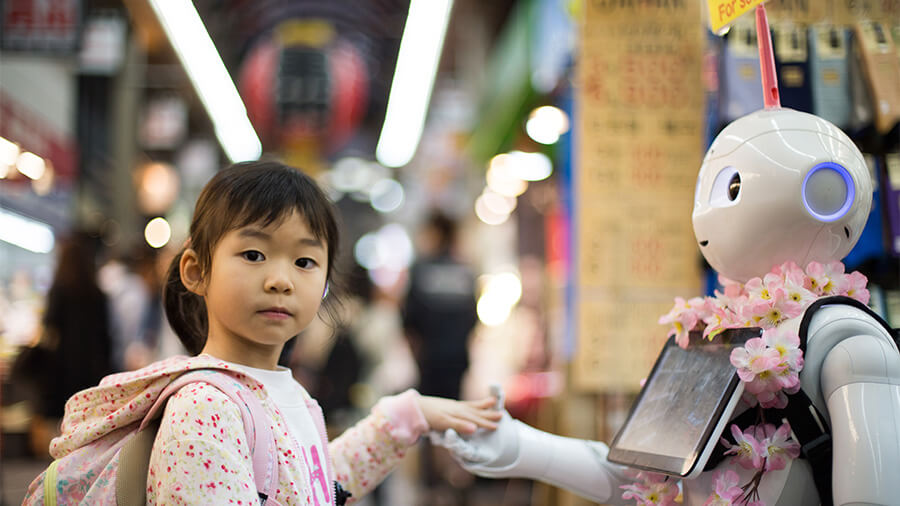With the support of The Institute of Advanced Studies (IAS), Dr Masoumeh Mansouri and Dr Matt Hayler established a network initiative to bring expertise from across a variety of fields to discuss existing definitions of culture and their potential for underpinning productive relations with social robotics.

This network, with its team of multidisciplinary participants,
aims at:
- exploring the relatively new field of study dedicated to the effects of the integration of cultural models into robots.
- developing cultural robotics which starts from a critical perspective.
- calling for a better understanding of the new forms of culture created in human-robot interactions, the impacts of these cultures on participants, the contexts within which interactions take place and on the wider societies.
There is a growing trend to attempt to introduce social and cultural behaviours and practices into the deployment and daily engagements of robotics. The main driver of this trend is a push t o enhance robots’ likeability and trustworthiness, and the comfort of their users.
However, the vast majority of approaches to introducing cultural factors into human-robot interactions rely on imaginations of “national cultures.” It has been shown that the oversimplified confounding of culture and nationality results in implicit support for conservative social policies, the reproduction of lazy and/or harmful cultural stereotypes, and, more pragmatically, simply inaccurate models of the wants or needs of an identified user base.

The current treatment of culture in robotics is largely limited to the definition of culture as nationality. This is problematic for a number of reasons: it ignores subcultures and cultural dynamicity, it excludes refugees and stateless persons, and is often simplified to nationality, which fails to isolate culture from politics and economics. In this network, we want to understand a form of culture for robotics that is different from the current practice.
Dr Masoumeh Mansouri, Co-lead, Critical Cultural Robotics Network
To avoid ineffective and actively harmful social robots, and to produce robot behaviour that better conforms to human cultural expectations, we need to develop a more accurate understanding of the diversity of relevant cultural needs, as well as be able to account for the different interpretations of “culture” in current and historical AI methods.
There is no “right” way to solve this complex issue, but satisficing solutions need to be generated to avoid an additional potential for damage in the move towards automation and increasing interactivity with variously embodied AIs.
Network leads